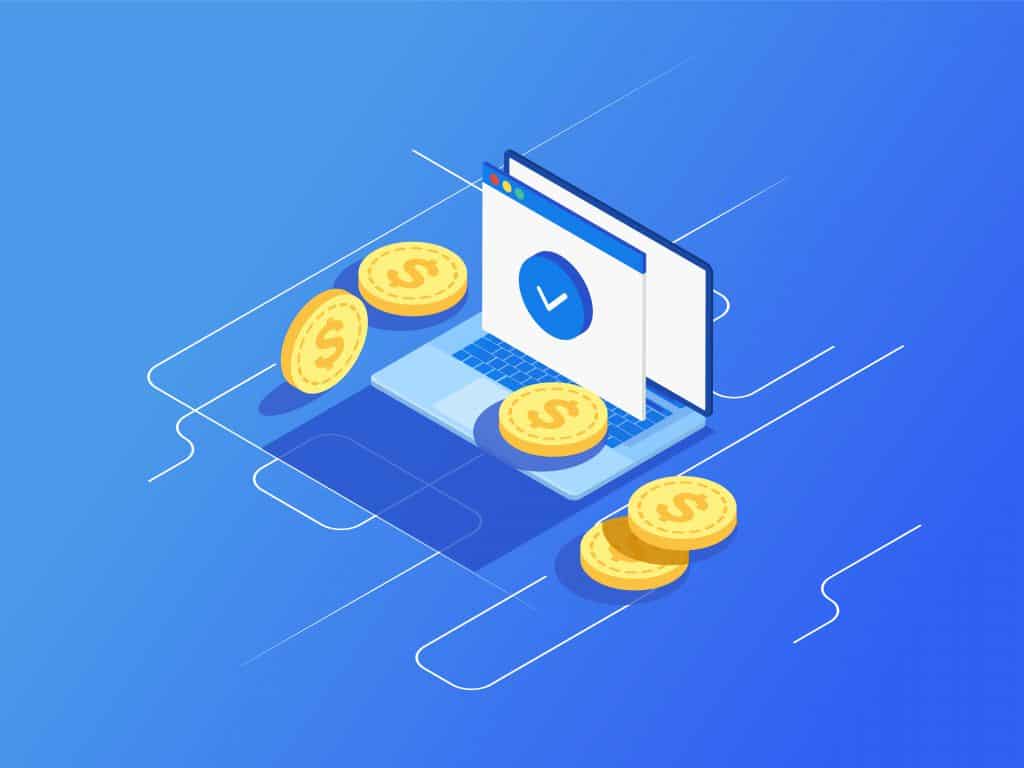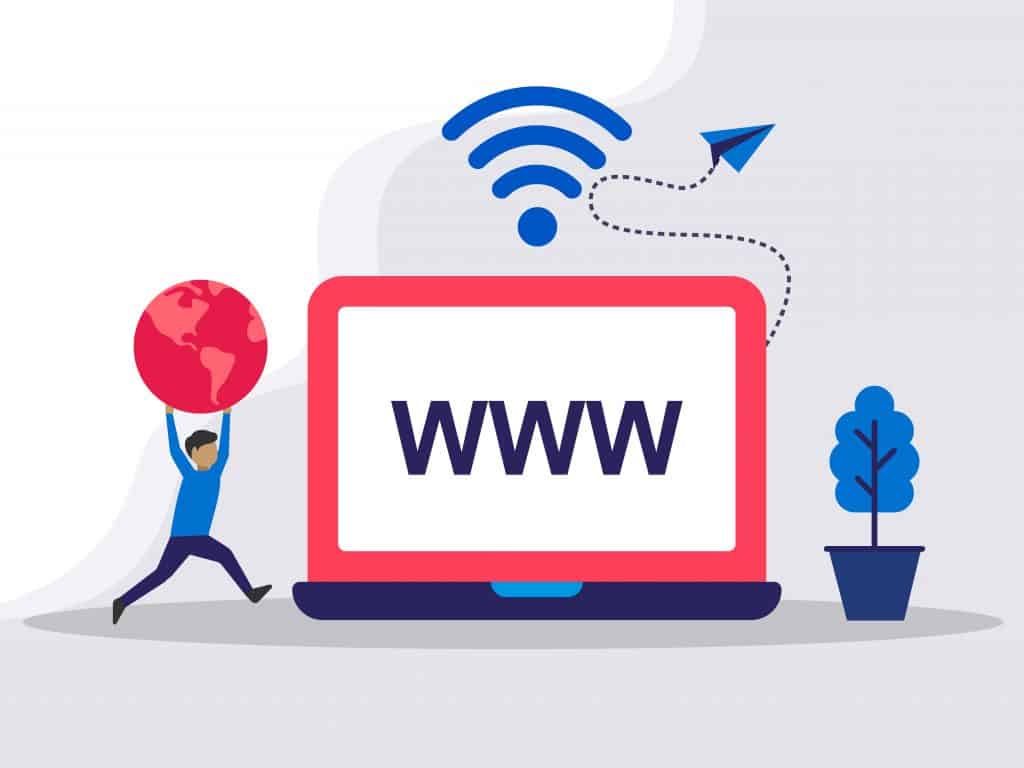Do I Need a Business License to Sell Online?
- By Douglas Moore
- September 14, 2020

Once you’ve set up your online store and are done dealing with stuff like web design, prices, payment methods, shipment, and all that jazz, you probably feel like you could use a break. Well, not just yet, because yes, you do need a business license to sell online. Although no one likes dealing with administration and filling out forms, some form of business license is likely required for your online business, just as it is for brick-and-mortar businesses.
But don’t worry – we’ll take you through everything you need to know about business licenses to sell stuff online: what a business license is, types of licenses, how to decide which type of license you need and where to get it, how much it costs, and when to renew it. Keep in mind that we’ll talk about businesses based in the US, so if you own a business abroad, different rules apply for you.
What’s a Business License?
Business licenses allow local, state, and federal authorities to track enterprises and keep people accountable for their actions and taxes. It basically places you above board, i.e. makes you legal. By getting the right business license, you’ll be allowed to operate your business in a certain location (like within a city, a state, or across the entire US). With a business license, the government gives you the green light to run your business, while you’ll need to regularly pay taxes and so on.
If you don’t get a business license, you could be fined and forced to close your business. With that in mind, it’s better to get a license sooner rather than later, as the risk of heavy state or federal penalties simply isn’t worth it.
Keep in mind that in addition to a business license, you’ll also need a sales tax license (also known as tax permit or seller’s permit) to run your online store, which is different from a business license. If you’re not planning on setting up a permanent online store, but just want to sell stuff temporarily, you can get a temporary seller’s permit which expires in 90 days.
What Are the Different Types of Business Licenses?
The three main types of business licenses and permits are:
- State-issued/General business license
- Federal license
- Doing Business As name (DBA)
Depending on your type of business (big or small, products or services, kinds and sorts) and scope of operations (local or federal), you’ll most likely need at least one of these three licenses. You can check out the SBA website, where you can find specifications of what permits and licenses your state requires for businesses. It will also let you know where to register, but oftentimes you can get your license online – which is great.
So, let’s take a look at what each of these licenses entails.
State-issued/General Business License
A state-issued or general business license will allow your business to operate in a given state, city, or county. That means that the jurisdiction of your business – at this point – will be limited to that area. The type of permit you’ll need and the applicable fees will vary based on your business and its location. Usually, these types of permits are renewed annually or biennially. The SBA recommends that you renew your license regularly, as it’s much easier than applying for a new one.
Most businesses will require this sort of license, as states are generally in charge of most local activities, as opposed to the federal government. Most businesses – from retail to farming – are regulated by your state.
While we can give you a general overview of what state-issued business licenses are, the rules and regulations vary significantly from one state to the other, and sometimes, from one county to another. Basically, you’ll need to research the regulations set by your state, county, or city to figure out what it is exactly that you need to do. To make your job a bit easier, you can find the business licensing rules set by your state, and take it from there.
Although there are a couple of states that may not require a license if you’re starting out small, we still recommend that you get your license anyway. As your business, revenue, and number of employees grow, you’re going to have to end up getting one. This way, you’ll stay ahead of the curve; plus, it makes you eligible for claiming tax deductions.
What if You’re Operating from Your Home?
Even if you’re managing your business from your home, you’ll still need a business license. The license you’ll need to get in this case is called a home occupation permit. It’s usually easier to acquire in comparison to the other types of permits we’re discussing, as most states have relaxed zoning laws. Here are a couple of the main zoning laws you may face:
- The number of employees and visitors: as your business grows, you won’t be able to get away with a home occupation permit any longer.
- Changes to the physical look of the home: for instance, you won’t be able to simply turn your home into an outright shop.
- Causing nuisance for your neighbors: things like intense odors or lots of noise are strictly prohibited for home-run businesses.
Keep in mind that this permit won’t be enough if you’re dealing with a huge number of products and sales. Check out what your state has to say about home permits – they’re usually found in sections pertaining to small business or zoning restrictions.
Federal Business License
Although most businesses are regulated on a state basis, some business industries are regulated by the federal government. For instance, subsections of doing business that include agriculture, alcoholic beverages, aviation, or firearms will require federal business licenses. Again, you can check out the SBA website to find out if this applies to you.
You’ll see that each type of federally-regulated industry has a different federal agency running it, so you’ll need to apply for a permit accordingly.
Keep in mind that if your business falls under the category that requires federal regulation, you’ll probably also need a state-issued license.
Doing Business As Name (DBA) License
In addition to getting a general license and possibly a federal license, you’ll most likely need to get a Doing Business As name (DBA) license. The only exception pertains to people that are running the business under their own name, without any additions, i.e. amendments, or changes.
For instance, let’s say your name is Regina Phalange. You won’t need a DBA if your business, i.e. trading name is also “Regina Phalange.” However, if the trading name is “Regina Phalange Craft Shoe Store,” you’ll need a DBA license. Of course, a DBA license also applies if the name of your business has nothing to do with your own name, like “Quirky Craft Shoe Store.”
In any case, obtaining a DBA license is quite easy, so there’s no reason why you should try to get around getting one. Plus, it comes with a few perks:
- No one else in your state can use your business name: the name of your business will be protected from use by others, which will help you raise brand awareness.
- Fraud prevention: when your trade name is protected, it can help you prevent fraud.
- You can open a business bank account: a business bank account will really come in handy. It can help you get paid through various online methods with ease, it can help you keep track of your business records, you’ll have precise taxes and deductions. Plus, it makes you look more professional.
To protect your trade name beyond state borders and across the entire US, you’ll need to get a trademark. Especially if your online business provides shipments to multiple states, getting a trademark is a good idea. There are lots of people with lots of business ideas out there, so you may get a duplicate in another state soon enough. If someone Googles your business, you don’t want someone else’s website to pop up before yours!
What Information Should You Provide when Applying for a Business License?
Some information you’ll be required to disclose when applying for a business license is the following:
- The legal structure of your business (information about you, the proprietor, or the LLC).
- A sales tax permit (as discussed above).
- Details about your business (what do you sell, how much, where, and so on).
When Should You Apply for a Business License?
Although not all states require a business license from the very beginning, we would recommend that you get one anyway. Once your revenue and employees reach a certain point, you’ll have enough on your plate without the additional work of acquiring a license. Basically, it will make the growth of your business easier to manage.
Where Can I Get a Business License?
Depending on your business and the type of license you’ll need to get, the answer to this question changes. As we’ve already mentioned, some business licenses can be acquired online, but some cities or counties may require you to go in person to pick up the paperwork and then drop it off. In some cases, even if you can get the forms online, you still may need to deliver them in person.
For a federal business license, you’ll need to apply through the federal agency responsible for your business (as outlined above).
Conclusion
Hopefully, our guide has made the whole process of getting a business license a bit clearer for you – even though you’ll have to do additional homework yourself.
View Related Articles

All About The .win Top-Level Domain
The .win gTLD has grown in popularity generally amongst gaming websites and communities. Everyone wants to win, right? In any case, if you’re thinking about launching your own .win website, let us give you a tour of the history, purposes, and popularity of this gTLD.

How To Sell A Domain Name
If you’re thinking about using the .fun gTLD for your website, we’ll help you brush up on everything you need to know about it – its history, who runs it, what it’s used for, and where you can get your very own .fun domain extension.

How Do I Permanently Buy a Domain Name?
You can’t. Was that too upfront? It’s the truth, though – domain names are just not designed to work that way. While big and small businesses have been trying to permanently own their domain names for decades, ICANN, the Internet Corporation for Assigned Names and Numbers, has made it impossible for anyone to own a domain name for life.